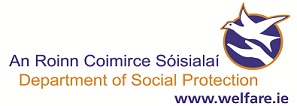

 |
 |
| Home | Sitemap | Contact |
|
What are the main functions of the Office?
1. Co-ordinationIreland's National Action Plan for Social Inclusion 2007-2016 (NAPinclusion) which was launched in February 2007 sets out a wide-ranging and comprehensive programme of action to address poverty and social exclusion linked closely with Towards 2016 - The National Social Partnership Agreement and the new National Development Plan 2007-2013 (NDP). The NAPinclusion has a strong focus on actions and targets - 12 high level goals and 153 targets and actions aimed at ensuring that a decisive impact on poverty is made over the lifetime of the Plan. By adopting a lifecycle approach the Plan is designed to mobilse resources to address long-standing and serious social deficits. The Office for Social Inclusion (OSI) co-ordinates the process and works closely with all relevant government departments and agencies in this regard. At the EU level under the Lisbon Agenda, Member States have prepared a series of strategic social inclusion plans since 2000 which identify trends and major challenges in relation to poverty and social exclusion aimed at making a decisive impact on poverty by 2010. These incorporate common objectives agreed at EU level, set key targets from some of those objectives and set out the implementation measures across relevant policy areas to meet the objectives and targets. The process also involves the use of indicators, some agreed at EU level, to measure progress in achieving policy targets. The Office for Social Inclusion also works with relevant Government Departments to co-ordinate this process. 2. Monitoring and EvaluationThe new strategic framework aims to achieve a more comprehensive and efficient monitoring process. This will ensure that reporting is streamlined, following the framework of Towards 2016 and encompassing the NAPinclusion, Ireland’s social inclusion input to the NSSPI 2006-2008 and the social inclusion aspects of the NDP.
The report will be presented to the Minister for Social and Family Affairs, the Cabinet Committee on Social Inclusion, the NDP Monitoring Committee and the Partnership Steering Group which will have an ongoing oversight role in relation to implementation of the lifecycle framework, providing an opportunity for engagement between the social partners in relation to progress under the NAPinclusion, NDP and other relevant strategies within the lifecycle framework.
3. Support FunctionsThe OSI also has responsibility to develop the following support functions to assist the process:
The OSI works closely with various agencies including the Combat Poverty Agency and the Economic and Social Research Institute, the Central Statistics Office, the Family Support Agency, the National Children’s Office and the Equality Authority in developing these support functions. 4. Regional and Local ImplementationMany of the measures to combat poverty are implemented at regional and local level. Effective implementation requires co-ordination to ensure that local variations on the nature, extent and causes of poverty are taken into account in both policy design and implementation. The office is working with the Department of the Environment, Housing and Local Government, the Department of Health and Children, other Departments with regional and local structures, and with the Combat Poverty Agency, to develop a more effective focus on the regional and local implementation of the NAP/inclusion. 5. Communications and ConsultationTackling poverty is not just a task for the State, but for society as a whole. There is a need, in the first instance, for effective communication on the trends and challenges in relation to poverty, and on the ongoing process for tackling it. This communication must involve all those within the governmental system, the Social Partners, the community and voluntary sector, the academic and research communities, the media, the wider public and, above all, the people experiencing poverty themselves. A communications strategy to meet this need has been developed. There is a similar need for effective consultation on all aspects of the process with key stakeholders. Institutional arrangements to facilitate and promote the necessary consultations are in place. 6. International DimensionThe eradication of poverty is a major priority at international level. There is much to be learned from the experience of other countries in tackling this common challenge, and from the policy analysis and research findings of the international organisations. Officials of the OSI participate in the work of relevant Committees of the EU, the Council of Europe, the OECD and the UN. OSI also participates in the new EU PROGRESS Programme 2007-2013 to combat poverty and social exclusion, full details of which can be found on the European Commission website at http://ec.europa.eu/employment_social/social_inclusion/geninfo_en.htm#progress The OSI also participates in the work of the Social Inclusion strand of the British-Irish Council.
|
|||||||||

|
Department of Social Protection, Gandon House, Amiens Street, Dublin 1,
Ireland.
|
 |